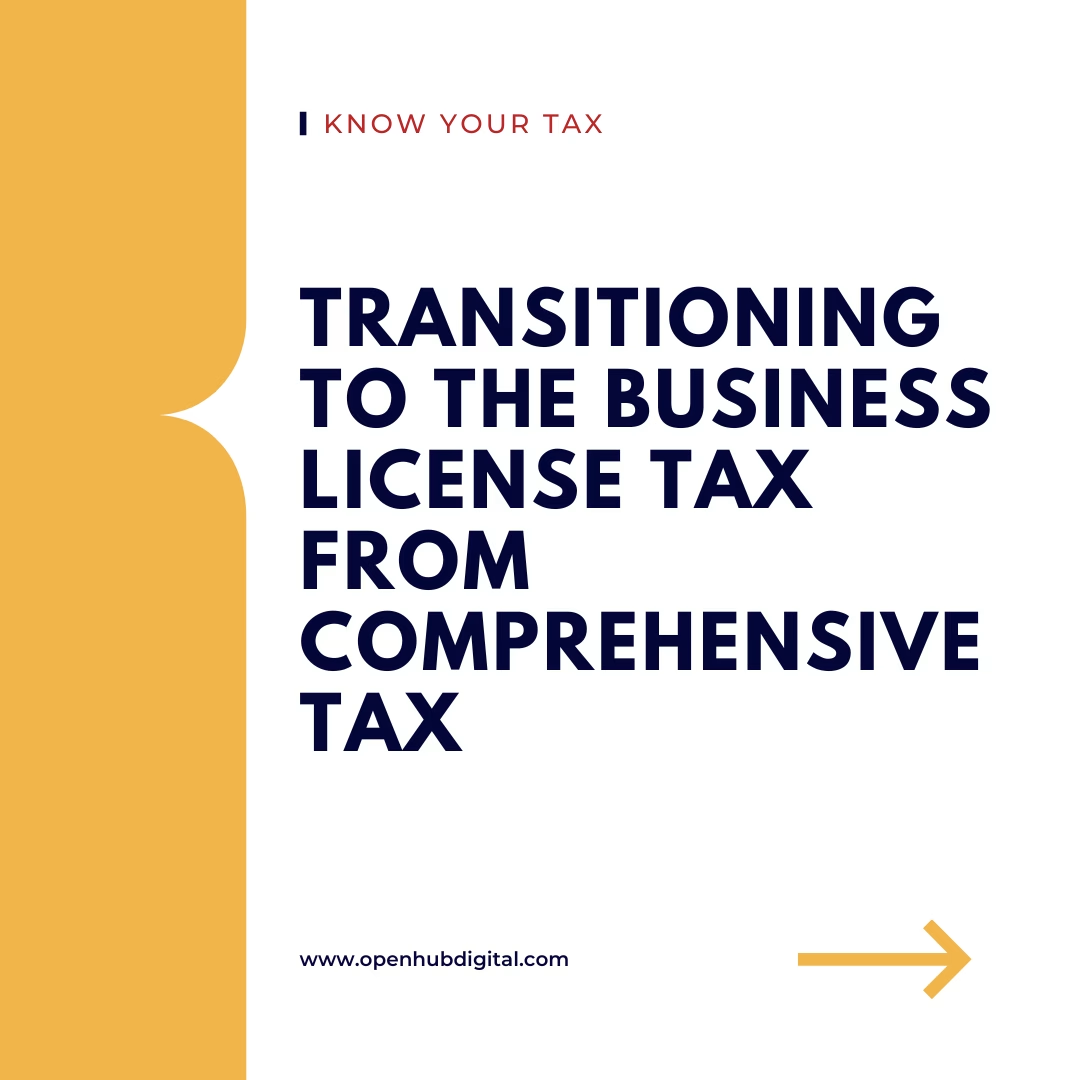Businesses operating under the comprehensive tax system in Cameroon must transition to the business license tax system once their annual turnover exceeds 50 million FCFA.
This shift brings significant changes in tax obligations, including the introduction of monthly tax declarations and a different tax assessment method.
When Does a Business Transition to the Business License Tax?
A business must move from the comprehensive tax regime to the business license tax system when:
If this article helped you, you can support our work at OpenHub.
Support OpenHub Digital- Its annual turnover exceeds 50 million FCFA.
- It becomes subject to actual earnings taxation rather than a fixed tax based on turnover brackets.
- It starts dealing with VAT obligations and other specific tax liabilities.
For tax eligibility criteria, visit comprehensive-tax-eligibility.
Key Changes After Transitioning
Once a business surpasses the 50 million FCFA threshold, it must comply with the following:
1. Monthly Declarations and Payments
Unlike the quarterly payments in the comprehensive tax system, businesses now:
- File monthly VAT returns.
- Submit corporate income tax declarations based on actual earnings.
- Maintain a more detailed accounting system to track income and expenses accurately.
Learn about accounting obligations in accounting-obligations.
2. Business License Tax Assessment
The business license tax is calculated based on:
- The type of business activity.
- The geographical location (urban vs. rural rates may differ).
- The annual turnover and profit margins.
3. Additional Tax Liabilities
Businesses must now:
- Pay corporate income tax (CIT), calculated based on net profits.
- Deduct and declare withholding taxes for employee salaries and payments to suppliers.
- Ensure compliance with local tax regulations to avoid penalties.
For professional tax support, check OpenHub Consulting’s Tax Management Services.
Challenges and How to Manage the Transition
Transitioning to the business license tax system may pose challenges such as:
✅ Higher Compliance Requirements – Keeping up with monthly declarations and detailed record-keeping.
✅ Increased Tax Liabilities – Understanding new tax obligations to avoid miscalculations.
✅ Potential Cash Flow Issues – Adjusting to regular tax payments rather than quarterly installments.
Businesses can manage this transition smoothly by:
- Hiring a tax consultant to handle their tax requirements.
- Implementing accounting software for automated tracking of tax obligations.
- Attending tax compliance training to stay updated on legal requirements.
For more on avoiding tax penalties, visit tax-non-compliance-penalties.
If your business is nearing the 50 million FCFA threshold, preparing in advance will ensure a smooth transition and prevent compliance issues.
If this article helped you, you can support our work at OpenHub.
Support OpenHub DigitalStay informed, keep detailed financial records, and seek professional tax guidance when necessary.
From Insight to Implementation
Going through the administrative and legal landscape in Cameroon requires more than just information—it requires a grounded local partner. At OpenHub Consulting, we specialize in helping the diaspora and international investors turn their business visions into compliant, operational realities.
If you are ready to move forward, our team is prepared to manage your registration and compliance from start to finish.
Start Your Company Incorporation →Discover more from OpenHub Digital
Subscribe to get the latest posts sent to your email.

